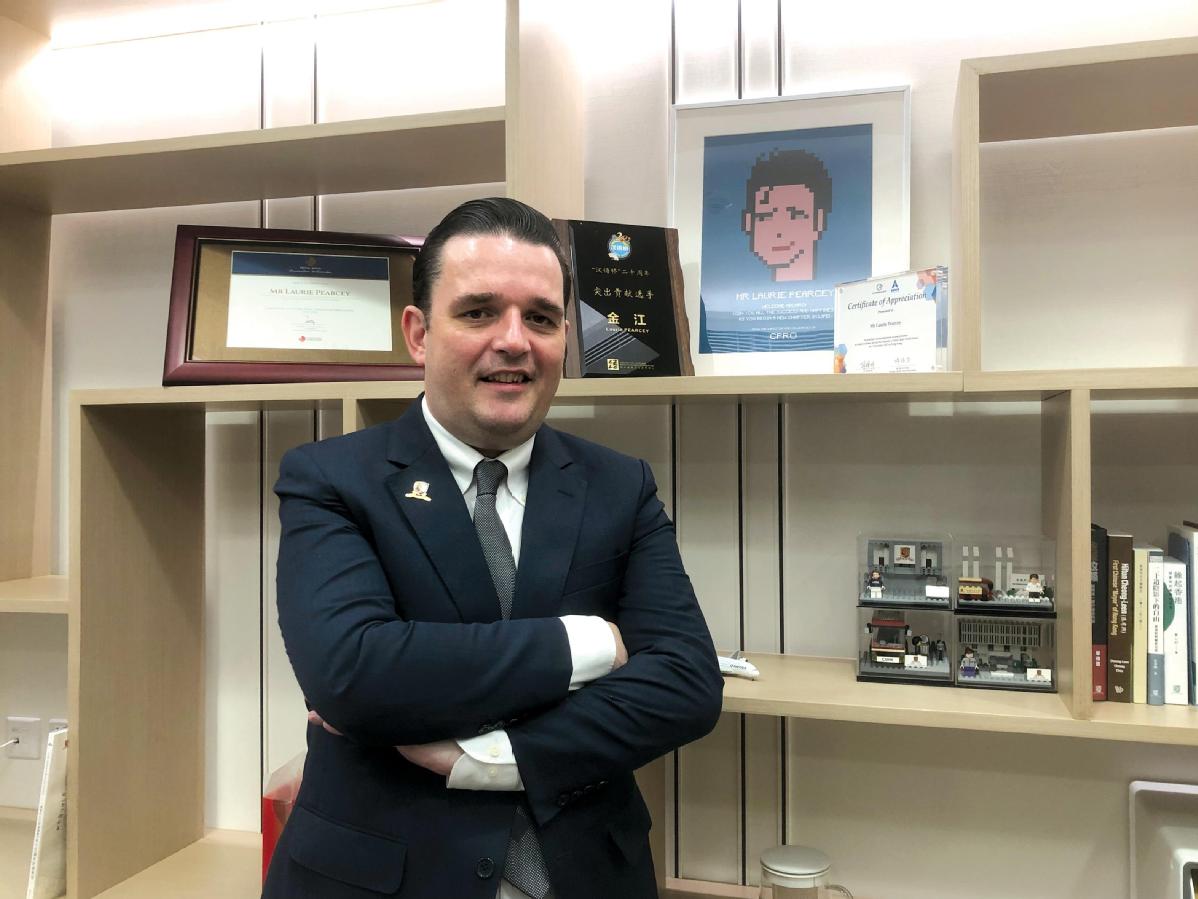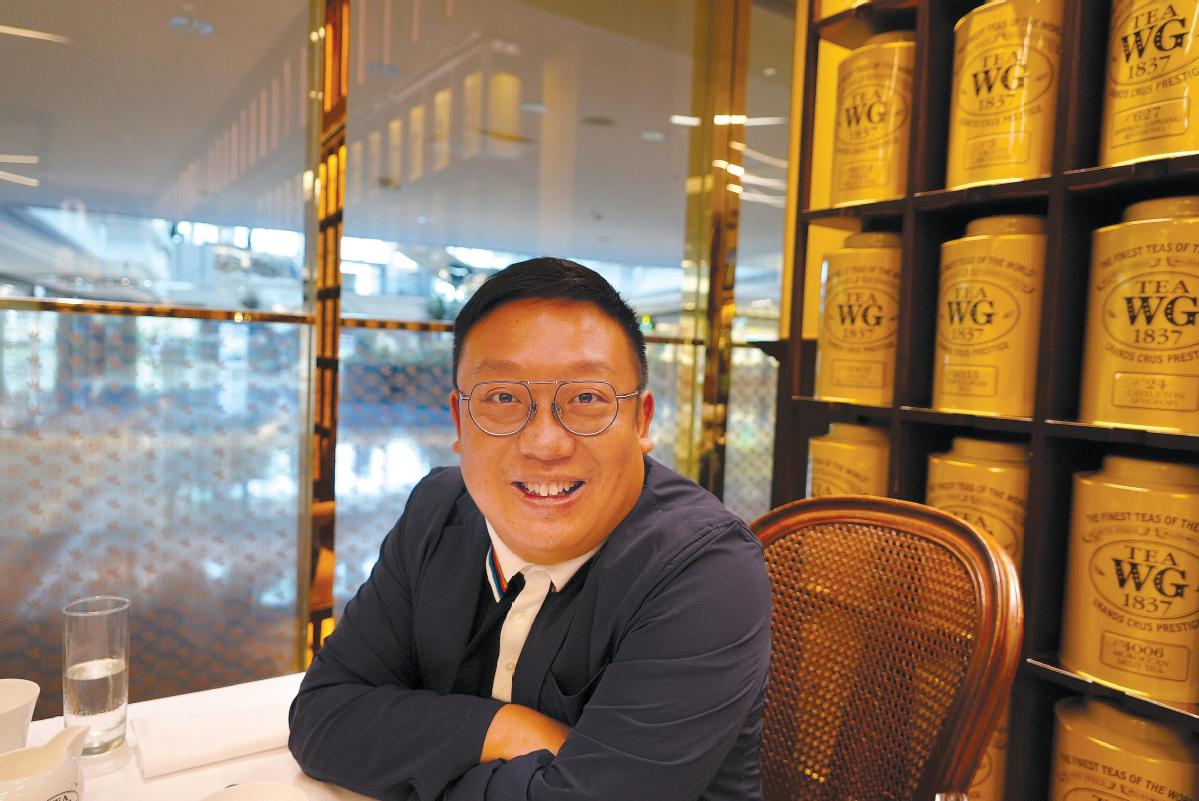Tussle for the best brains

Hong Kong is pulling out all the stops in its bid to lure top global talent to the city. Experts say the SAR can outplay its competitors in attracting professionals on its unique strengths as a world financial hub and gateway to the Chinese mainland. Zhang Tianyuan reports from Hong Kong.

The Hong Kong Special Administrative Region is at a crossroads in reshaping its economic structure and the vitality of its labor market. The city's unrelenting financial boom has triggered huge demand for talent in financial services, while technological growth, buoyed by state-of-the-art innovations, has unleashed an equally massive need for skilled workers.
However, the combined impact of the COVID-19 pandemic, an exodus of professionals and a graying population has led to an acute dearth of talent across various sectors that propel the financial hub's progress.
To tackle the pressing issue of a growing human capital deficit, and to lift Hong Kong's competitiveness, the SAR government has rolled out a range of measures, such as tax incentives and relaxed visa regulations, to lure highly skilled professionals from around the world.
At the center of the exercise is the Top Talent Pass Scheme, which offers fast-track employment visas for individuals with outstanding educational backgrounds, or those drawing high salaries, including the financial and technological professionals that Hong Kong badly needs. Successful applicants will be granted two-year work visas that could be extended.
By the end of March — three months after the program was implemented — it had drawn more than 20,000 applications, with about 12,000 of them approved. Over half of the applicants are below 30 years of age, according to Secretary for Labour and Welfare Chris Sun Yuk-han.
Official data in February showed that out of the 8,797 approved cases, approximately 95 percent were from the Chinese mainland, followed by Canadians and Australians.
The figures, however, suggest that the SAR government's goal of attracting top international talent is still far from being achieved, raising concerns about the city's ability to lure expatriates. Pundits warn that without sufficient foreign talent, Hong Kong may have to struggle to maintain its status as a premier world financial center, as well as a trade and business hub.
Lawmaker Rock Chen Chung-nin suggested that entrepreneurs from Southeast Asia and Saudi Arabia, who play a significant role in unlocking Hong Kong's development potential, should be the primary focus of Hong Kong's global drive for talent. "This is essential in expanding our business network," he said.
Having visited various Southeast Asian nations, Chen said many entrepreneurs and business chambers there have shown keen interest in Hong Kong because of its unique financial strengths and role as the key southern gateway to the Guangdong-Hong Kong-Macao Greater Bay Area.
"They aim to use Hong Kong's financing platforms to help their companies go public or secure funds. Hong Kong's strategic location allows them to tap development opportunities in the Greater Bay Area," Chen said.
Christopher Tang, a distinguished professor at the University of California, Los Angeles, noted that Germany is also keen to continue investing on the mainland, and German entrepreneurs should be a key target for Hong Kong. "To many German professionals, Hong Kong appeals to them as a gateway to the mainland. To Germany and other European countries, the SAR's low-income tax regime is an economic incentive," he said.

Fierce competition
Hong Kong is not alone in meeting the challenge of trying to bolster its talent pool in the aftermath of the pandemic. The shift in people's mindsets in pursuing endeavors in line with their personal values and aspirations has fueled a surge in workforce migration. The competition for skilled human resources is likely to escalate, and it is incumbent upon cities and enterprises to revamp their strategies to entice and retain the brightest individuals.
In a report titled "Future of Work", US-based consulting firm Korn Ferry analyzed 20 global economies and concluded that the world's shortage of skilled labor could reach up to 85 million people by 2030. The figure is almost equivalent to Germany's population, and could potentially lead to unrealized annual revenue losses of $8.45 trillion by 2030 — nearly the combined gross domestic product of Germany and Japan.
Thus, an international tussle for the best brains, or a competition of vision, is underway. Hong Kong does have the potential to outwit, outplay and outlast its competitors by fully leveraging the city's educational, geographical and political resources.
Ivan Chu Siu-lun, a member of the United Nations ESCAP Sustainable Business Network, isn't surprised that Chinese nationals take the lion's share of the number of professionals eyeing to play a role in the SAR's development. Mainland talent's desire to come to Hong Kong has never stopped for various reasons, such as pursuing quality international education, he said.
But the crux is how to retain highly educated people in Hong Kong. "We have three factors that keep people here — careers, welfare and emotional attachment," said Chu, who is also a member of the Chinese Association of Hong Kong and Macao Studies.
He would like to see the SAR government improve public sentiment over housing and medical care issues. This would require efforts to change people's perceptions of Hong Kong's skyrocketing home prices and housing affordability, as well as healthcare and quality education for their children, in order to retain professionals. This also applies to luring overseas talent, he said.
Laurie Pearcey, associate vice-president of the Chinese University of Hong Kong, said Hong Kong's high concentration of world-ranking and competitive universities in a common law jurisdiction, with a population of 7 million, has made the city a global leader in fostering exceptional talent. Such a talent pool, according to Pearcey, will help drive economic growth and social upgrading.
"Hong Kong has to be clear about its competitive position," he said, adding that the SAR boasts a big number of universities "comfortably" ranked among the world's top 100 tertiary educational institutions. Hong Kong's prowess in driving a new round of economic growth locally and regionally would be further highlighted if the number of top-notch educational institutions were to be evaluated on a per-capita basis.
A recent university rankings report by United Kingdom-based education information firm Quacquarelli Symonds confirms Pearcey's vision — five out of the eight universities funded by the University Grants Committee in the SAR are listed among the world's top 100.
Hong Kong is also blessed with the advantages presented by "one country, two systems" — the cornerstone of the city's capitalist system — making it a key gateway to mainland markets for expatriates, especially to the Greater Bay Area.

Collective strength
Pearcey noted that the 11 cities in the Greater Bay Area are in the race to attract talent. But he said he believes it is a "healthy competition. "At the end of the day, all these cities are pursuing the same goals."
Local governments in the cosmopolitan circle with a combined population of 86 million are working closely with the "same ambitions" by promoting cross-border flow of talent within the region, he said.
The latest bid by Hong Kong and Macao to alleviate the acute shortage of professionals and facilitate exchanges involves the launch of a new "talent visa" program for residents in the nine mainland cities of the Greater Bay Area. At least one-third of all eligible talent categories comprise technology-related professionals. They would be granted a stay of up to 30 days and visas valid for up to five years in either of the two SARs.
Henry Ho, founder and chairman of the think tank One Country Two Systems Youth Forum, said attracting talent is not a zero-sum game. Human capital flow among different cities in the Greater Bay Area can forge "closer ties between Hong Kong and the mainland cities of the Greater Bay Area, which could lead to increased business opportunities for both sides," he said.
Hong Kong could consider implementing policies that encourage local young people to gain relative skills in the Greater Bay Area, while providing incentives for them to return to Hong Kong and contribute to the city's economy.
Victor Kwok Hoi-kit, head of education and youth research at think tank Our Hong Kong Foundation, said he believes that collaboration among the 11 cities in the Greater Bay Area could lure more international talent to Hong Kong. Such an alliance would provide a more robust technology transfer process and a larger test market for new products. The mainland cities offer large commercial markets and manufacturing facilities that could greatly benefit Hong Kong.
"We can put the right talent in the right place," stressed Kwok, adding that these cities have different areas to focus on. This would address the current limitations Hong Kong researchers are facing as they struggle to commercialize their inventions due to the city's small market and lack of manufacturing facilities, he added.
- Memorial ceremony remembers victims of Nanjing Massacre
- Louvre's largest showcase in China goes on display at Museum of Art Pudong in Shanghai
- Indonesian foundation to fund students, school administrators to exchange and study in Tianjin
- Archives detailing crimes of Japanese unit released
- 'Reservoirs of primordial water' may be buried deep within Earth
- China remembers victims of Nanjing Massacre, 88 years on




































